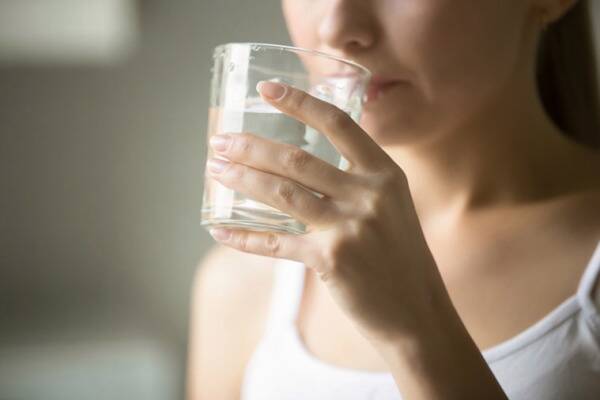
WATER AND ITS VITALITY
Ahmedabad: It’s general knowledge that water is necessary for good health. This material accounts for the bulk of your body’s weight and is engaged in several critical tasks, including removing waste from the body, controlling body temperature, and aiding brain function.
Drinking liquids provide the majority of your daily water consumption, although food also provides a minor amount.
Here you can find out how water might benefit your health:
• It keeps your body temperature in check.
Maintaining your body temperature requires staying hydrated. During physical exercise and in heated situations, your body loses water through perspiration.
Sweat keeps your body cool, but your body temperature will rise if you don’t replace the water you lose. That’s because when you’re dehydrated, your body loses electrolytes and plasma.
If sweating more than normal, be sure to stay hydrated by drinking lots of water.
• It aids in saliva production.
Saliva contains a lot of water. Saliva also contains electrolytes, mucous, and enzymes in minute amounts. It’s necessary for breaking down solid foods and maintaining oral health.
When you drink enough water, your body generates adequate saliva. However, as you become older or take certain drugs or treatments, your saliva production may decrease. Consult your doctor if your mouth is drier than normal and increasing your water intake isn’t helping.
• It safeguards your internal organs, spinal cord, and joints.
Water keeps your joints, spinal cord, and tissues lubricated and cushioned. This will allow you to enjoy physical exercise while also reducing the agony caused by ailments such as arthritis.
• It aids in the improvement of physical performance.
During physical exertion, it is essential to drink lots of water. During physical exertion, athletes might perspire up to 6% to 10% of their body weight.
Your strength, power, and endurance are all affected by hydration.
If you engage in endurance training or high-intensity sports like basketball, you may be more sensitive to the consequences of dehydration.
Exercise in the heat without adequate hydration can result in dangerous medical issues such as low blood pressure and hyperthermia. Seizures and even death can result from severe dehydration.
• It helps with digestion.
Experts affirm that drinking water before, during, and after a meal can assist your body break down the food you consume more readily, contrary to popular belief. This will aid in your digestion and allow you to get the most out of your meals.
The body adjusts to variations like food and stomach contents, whether they are more solid or liquid, according to research.
• It aids with weight loss.
Drinking water has been connected to body fat decrease and weight loss in both overweight girls and women in studies. While dieting and exercising, drinking more water may help you shed some pounds.
Consummation – It’s critical to keep track of how much water you drink each day for optimal health. The majority of individuals drink when they are thirsty, which helps to control their water consumption.
The National Academies of Sciences, Engineering, and Medicine recommends that most persons consume the following amounts of water (from all beverages and meals) to satisfy their needs:
- For males, 15.5 cups (125 ounces) of water per day is recommended.
- Approximately 11.5 cups (91 ounces) per day for women
- Food provides roughly 20% of a person’s daily water consumption. The rest is reliant on water and water-based drinks to survive. Men should drink around 100 ounces (3.0 litres) of water from drinks, while women should drink about 73 ounces (2.12 litres).
- Water is necessary for practically all of your body’s functions. Not only can sticking to your daily suggested consumption help you maintain your present level of health, but it may also help you enhance it.
- Try to ensure you receive adequate liquid. Keep a water bottle with you at all times. In this manner, you can drink whenever you want. Keep note of how much you’re taking in. Aim to consume optimal quantities of water every day, at least half your body weight in ounces.
- By lunchtime, you should have consumed half of your recommended intake. You can always complete an hour or so before going to bed.













